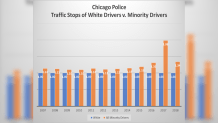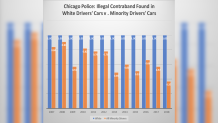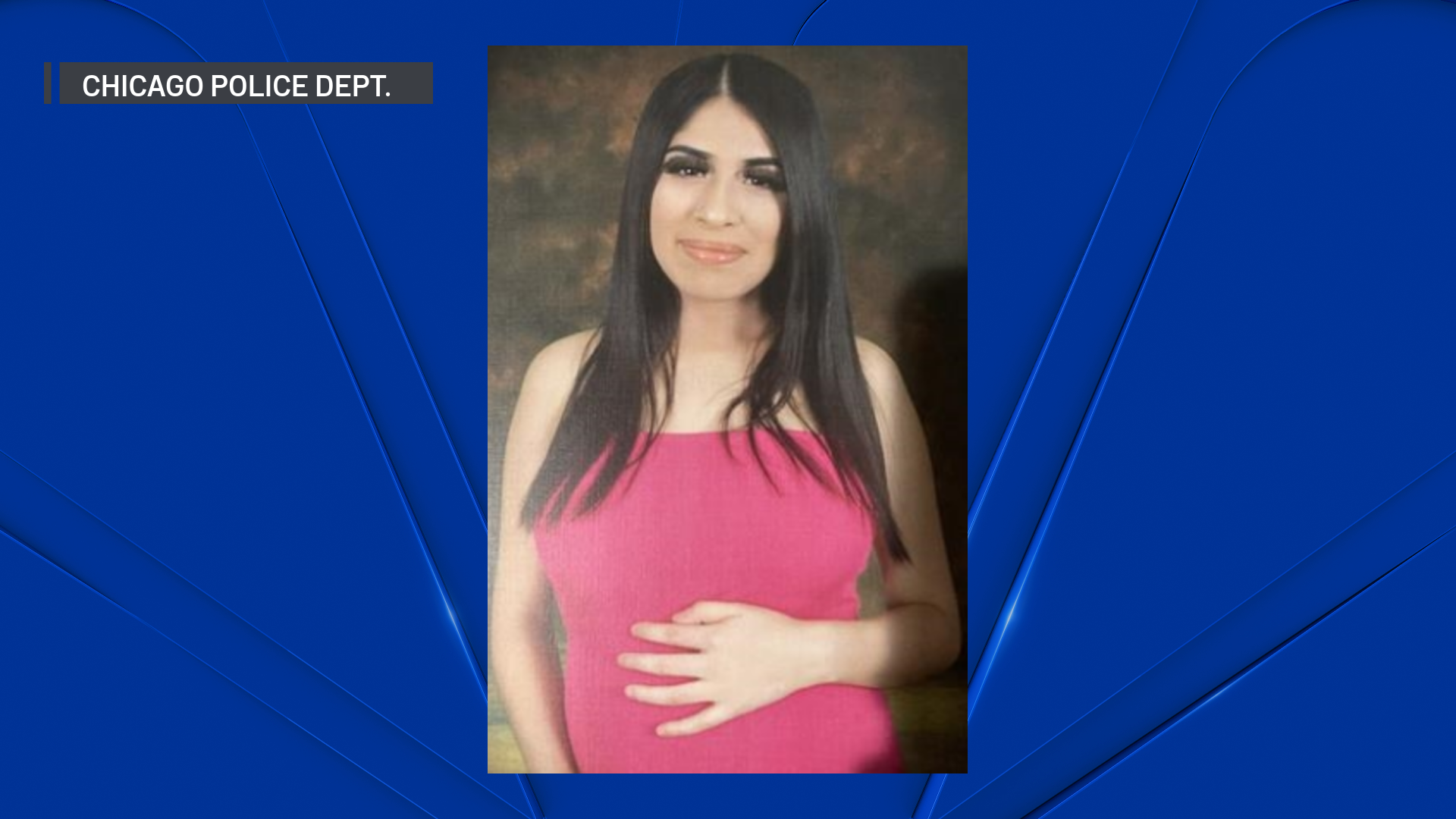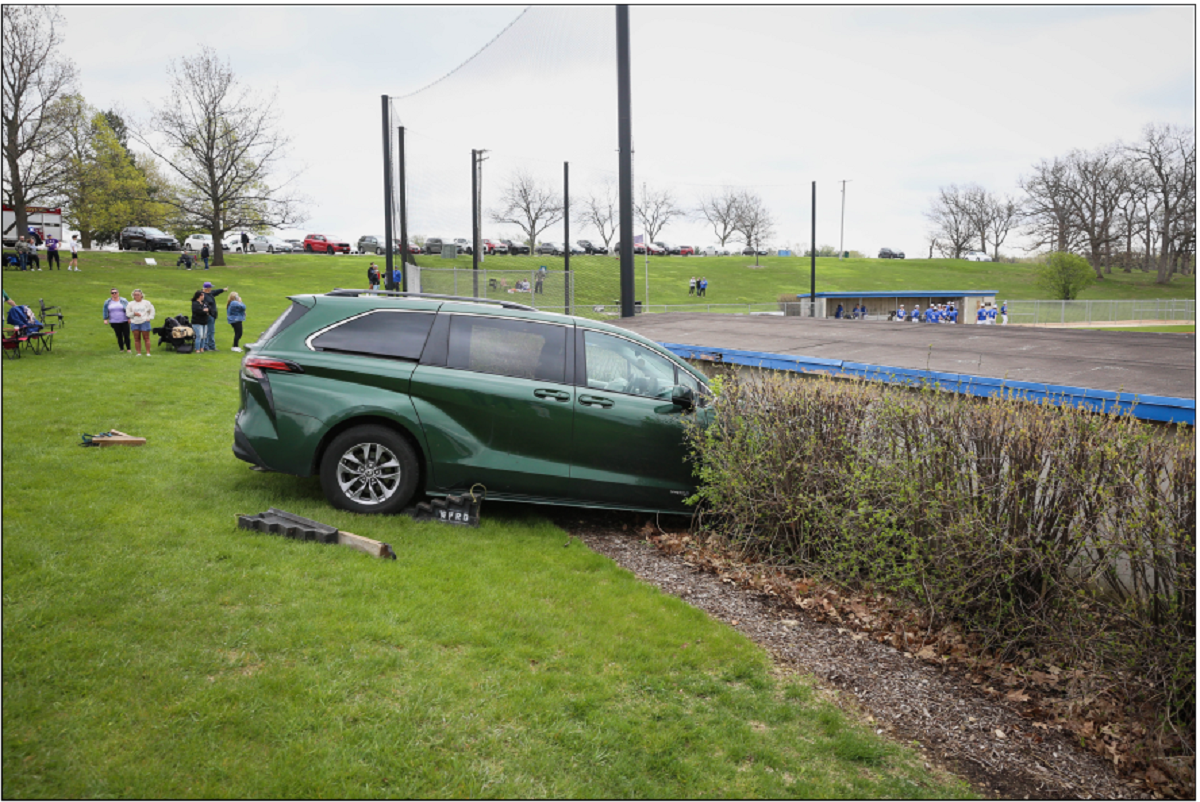The report released this week examined Chicago Police Department stop and frisk data between 2018 to 2020 and found people who were Black and Latino were stopped at much higher rates than people who are white.
Despite years of reform efforts, a newly-released report has found a racial disparity still remains persistent when it comes to who Chicago police officers pull over, stop and frisk.
The report, published by the same independent monitor involved with the ongoing consent decree aimed at reforming the Chicago Police Department, found CPD officers stop and pat down people who are Black or Latino at much higher rates than those who are white.
The report looked at CPD stop and frisk data between 2018 to 2020.
Feeling out of the loop? We'll catch you up on the Chicago news you need to know. Sign up for the weekly Chicago Catch-Up newsletter here.
Among its findings:
- A Black person was nine times as likely be to stopped as someone who was white
- A Latino person was three times as likely to be stopped when compared to a white person
- Black and Latino people were patted down more than often than white people
NBC5 Investigates’ own examination found this isn’t anything new, but part of a longstanding issue within the Chicago Police Department.
Local
We took a closer look at the reports that law enforcement submitted to the state as part of a traffic and pedestrian stop study.
We looked at traffic stops and searches by police departments across the state, using the annual reports every law enforcement agency must submit as part of the Illinois Department of Transportation’s Traffic and Pedestrian Stop Study.
Here's what we found: Chicago Police have been stopping minority drivers at higher rates than white people every single year since the study took effect in the early 2000s.

And in each year, Chicago police found more contraband on white drivers they stopped when compared to minorities.

“That’s just absurd. And the city and the Chicago Police Department has never figured out any reasonable explanation for the reason that that’s happening,” said Ed Yohnka with the ACLU of Illinois.
The monitor’s report was published as part of a settlement agreement between CPD and the ACLU of Illinois, which raised concerns during a major study eight years ago.
“What we’ve really seen dating back to 2015 is a systemic failure on the part of the leadership of the Chicago Police Department to correct the racial disparities within investigatory stops or stop and frisks,” Yohnka said.
Illinois Sen. Robert Peters, a Democrat from Chicago and a member of the public safety subcommittee for Mayor Brandon Johnson’s transition team, spoke to NBC 5 Investigates’ Friday. When asked what can be done to address this, he responded:
“Honestly. Don’t do any racist traffic stops would be helpful," he said. "Some people tell me that is too pie in the sky, so I guess I shouldn’t demand a better road in that sense. It’s just an accountability process, making sure we have a change in direction on not moving stop and frisk from the street to the car…"
NBC 5 Investigates asked CPD to respond to the report and if they could explain the disparity.
In a statement that did not directly answer our question, a CPD spokesperson said that they anticipate the consent decree being amended to include reforms on stop and frisk, saying:
“The Chicago Police Department and the City of Chicago, in agreement with the American Civil Liberties Union of Illinois, entered into an agreement in 2015 to ensure CPD's investigatory stops and protective pat down policies and practices are constitutional. We anticipate that a stipulation will be filed in court later amending the consent decree in regards to investigatory stop and protective pat down policies. These efforts to improve these policies remain an important part of our overall reform efforts as we continue to build and maintain trust within the communities we serve.”



